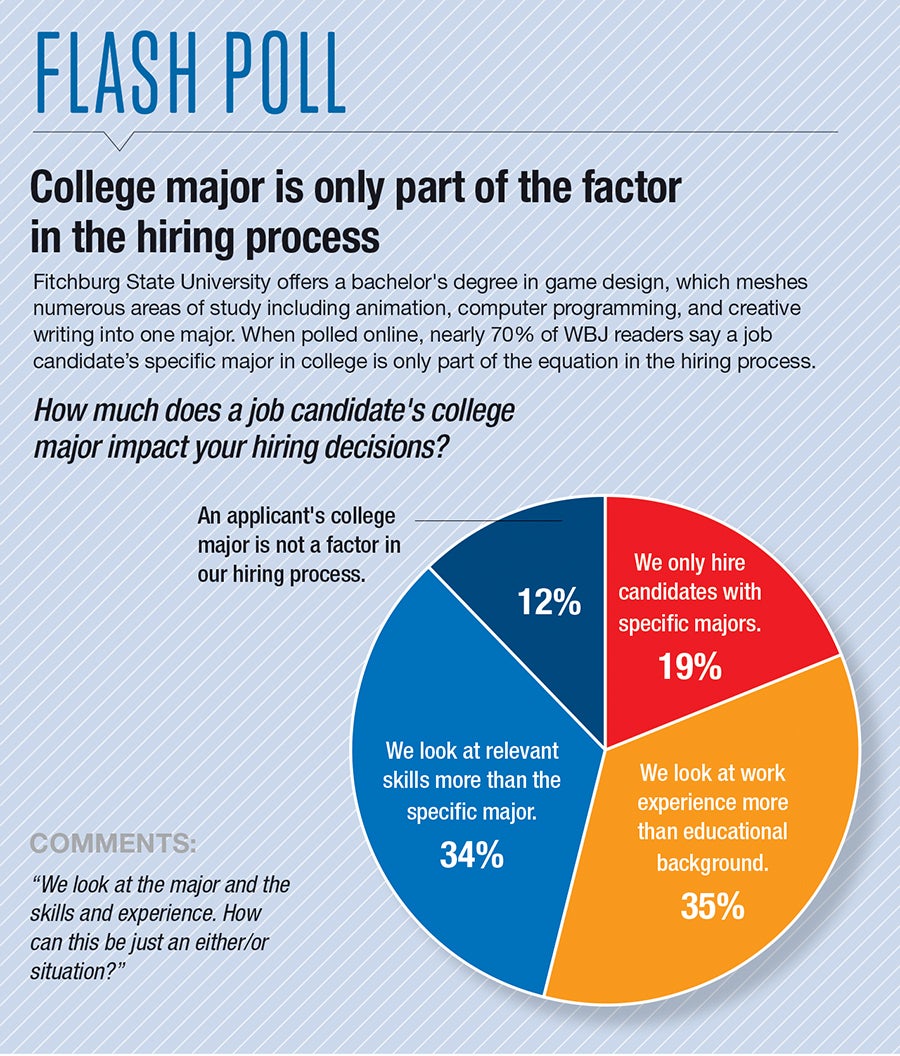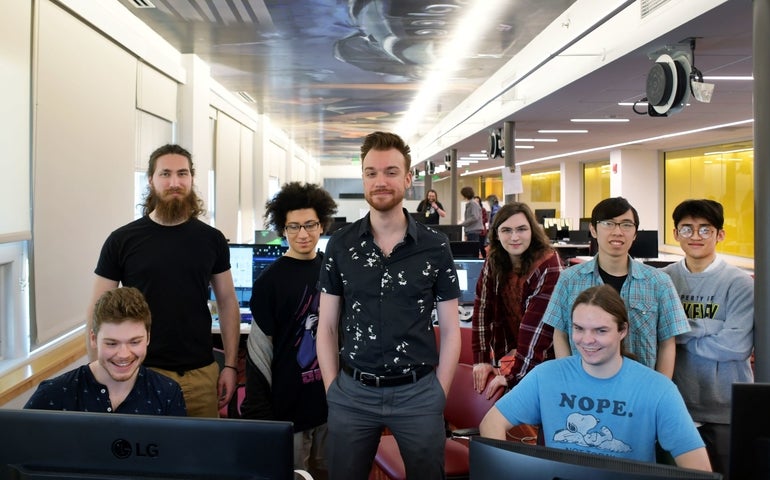Fitchburg State’s game design program positions students and the school near the forefront of a $57 billion industry.
Get Instant Access to This Article
Subscribe to Worcester Business Journal and get immediate access to all of our subscriber-only content and much more.
- Critical Central Massachusetts business news updated daily.
- Immediate access to all subscriber-only content on our website.
- Bi-weekly print or digital editions of our award-winning publication.
- Special bonus issues like the WBJ Book of Lists.
- Exclusive ticket prize draws for our in-person events.
Click here to purchase a paywall bypass link for this article.
On Thursday, May 11, on the second floor of a nearly 100-year-old, largely vacant theater building in downtown Fitchburg, a group of students wearing virtual reality headsets turned their heads and waved their arms around behind the glass walls of the school’s new game design lab.
These Fitchburg State University students are testing a game called Worm Punk, a networked VR movement shooter, wherein the player flies around an arena trying to kill opponents before being killed themselves. Students and faculty say it is the first game of its kind.
The students developed the game from scratch as part of their capstone projects for their bachelor’s degree in game design. Students in the game design program must complete either an internship or game studio, a 40-hour-a-week class where students develop a video game with their classmates.
“We’ve been able to do some really great stuff because it’s an environment where our careers aren’t reliant on us selling it. It’s reliant on us having a good and interesting product,” said Christian Hotte, a senior in the program who was the lead on the Worm Punk project. “That’s what I’m here for, to be able to do kind of radically experimental things.”
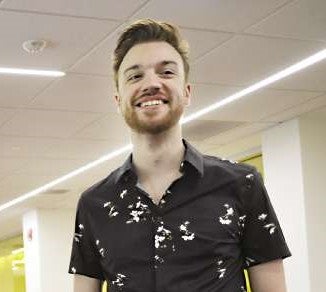
FSU’s program was the first game design major offered by a public university in New England and is still one of the few. It was first offered in 2014 after former executive vice president and provost Robin Bowen approached the Communications Media Department head Jeffrey Warmouth and Professor Samuel Tobin in 2012 with the idea. They got to work figuring out what would be needed for such a program, securing the facilities and personnel.
The program is still going strong with graduates going on to work with large companies like North Carolina-based Epic Games, which is behind the video game phenomenon Fortnite, starting their own game studios, or taking the skills they learn to other industries like online retail, robotics, and defense. The university invested in a new game design studio in the Fitchburg theater building, which it is redeveloping, to house its entrepreneurial-style video game design capstone class.
Fitchburg State’s program is not the only game design program in Central Massachusetts. Clark University in Worcester and Worcester Polytechnic Institute both took on parts of Becker College’s celebrated program after the Worcester school dissolved in 2021.
Video games are big business. Overall total consumer spending on video games in the U.S. totaled $56.6 billion in 2022, according to a Jan. 17 press release from the Entertainment Software Association. However, 2022 video game sales saw a 5% drop from 2021 COVID-influenced highs. In comparison, Gower Street Analytics of London said global box office sales for the movie industry was $25.9 billion, and it projects sales of $32 billion in 2023.
Not playing games
None of the people WBJ spoke with for this story identify as a hard-core gamer. Students who enter the Fitchburg program expecting to just play video games may transfer out of the program, as it requires an academic approach and a maker’s mentality, said Tobin.
The program is nested in the Communications Media Department among majors like graphic design, film and video production, and public relations, social media, and advertising production. It is separate from the computer science department, though there is some crossover of skills.
“Game technology is another kind of storytelling, an artistic medium,” said FSU Associate Professor Jonathan Amakawa, who is the coordinator of the video game design major.

Amakawa, who has a fine arts background, sees uses for gaming technology that go beyond passing the time with Call of Duty or playing Candy Crush on the subway.
Amakawa works with augmented reality to enhance visitors’ experiences at historical sites. He has worked with the U.S. National Park Service on the Abraham Lincoln Home in Illinois. He created an AR app allowing visitors to Springfield, Missouri, to see what happened during the 1908 race riot, which led to the creation of the NAACP. He created an AR app to show what the Japanese-American internment camp looked like at Heart Mountain, Wyoming.
In addition to bringing history to life, Amakawa said gaming technology, particularly AR and VR, are used to create training experiences for nursing students, improve online shopping experiences for retailers, and create experiences for psychological studies.
Students from the FSU program have used their knowledge to improve how robots move and have brought their skills into the defense industry.
The final level
At the capstone project’s post-mortem event, a presentation of the students’ final projects from the game studio class, the focus was decidedly on games. The presentation took place in a lecture hall on the main campus on May 16, before an enthusiastic crowd of students, faculty, and parents.
At the start of the semester, students pitched ideas for projects. Three games won out: Worm Punk; The Plaything, a puzzle horror game where a paper doll explores a creepy doll house; and Lobber, a manic 3D hack-and-slash game where the protagonist is pitted against a horde of skeletons and sorcerers.
The students in the studio divide into teams to work on the games. Throughout the semester, they combine their skills and learn project management as they develop a fully working game.
All of the games are available for download at itch.io, and the teams hope to get their games onto Steam, a popular video gaming platform. One of the appealing things about the program for Hotte is the teams maintain intellectual property rights to their projects.
“The big thing about going here that I really appreciate and I think every program should do is we own our games. We keep our IP,” said Hotte. “The professors are not really dictating the actual content of the products that we’re making.”
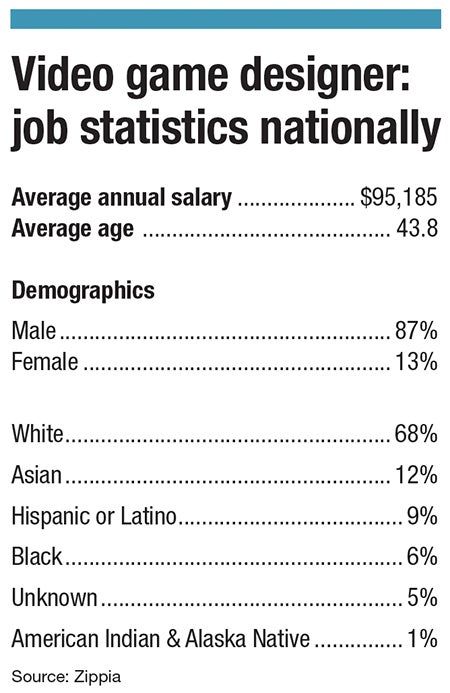
During each of the presentations, the students discussed what they had learned from the experience, which included project management, how to keep the scale of a project realistic, managing time and resources, and how to self-regulate so as not to burn out.
Because students are often so passionate about what they do, they can be subject to burnout, Hotte said, and this passion is sometimes weaponized by companies seeking to capitalize on it.
The students who presented skewed noticeably male, which Hotte said he noticed in the program. There are no women professors in game design, something he hopes the school will remedy as it hires a new professor.
The gaming industry does have a gender imbalance according to data from job site Zippia, with 86.7% of game designers being male. The data does not account for nonbinary designers.
Moving on
Students who graduate from the program and enter the gaming industry can expect to find themselves in a highly-competitive environment, possibly subject to long hours and low entry-level pay, said Hotte.
Layoffs can be part of the industry as large projects end and the personnel who worked on a game may be cut loose to look for another project at another company. Even successful game designers find themselves moving from company to company, said Amakawa.
The cyclical nature of hiring has been tempered by the rise of live-service games, like Fortnite, said Denzel Weatherspoon, who graduated from Fitchburg State in 2019 and now works for Epic Games. Live-service games constantly add new levels or features to an existing game rather than releasing entirely new retail products.
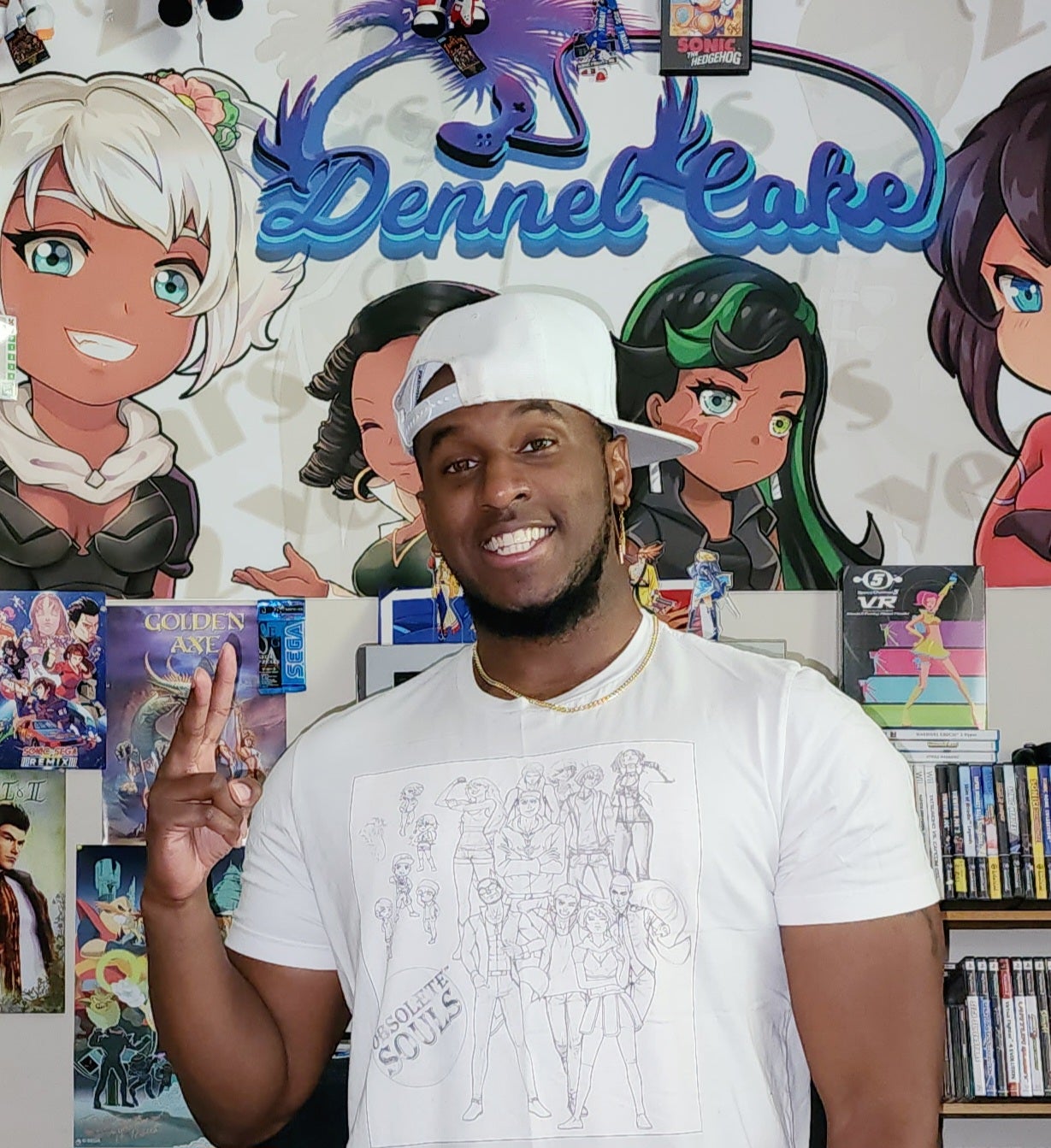
Weatherspoon has helped connect FSU graduates with Epic since joining the company. Students specifically from the Fitchburg State gaming program have an advantage as they get access to a lot of aspects of game design and not funneled into a specialty, he said.
“Students need to take advantage of the software that they have access to while in school,” said Weatherspoon. And after school, he advises students to not be discouraged if they don’t land a job immediately.
“Keep learning, keep busy,” he said.
In what is ostensibly his spare time, Weatherspoon runs a game studio called Dennel Cake, which he started in 2017. He finished his first game, Obsolete Souls, in 2018.
Making games is very much a passion for the students. Hotte has a job lined up in technology manufacturing after graduation, but he intends to continue building games.
